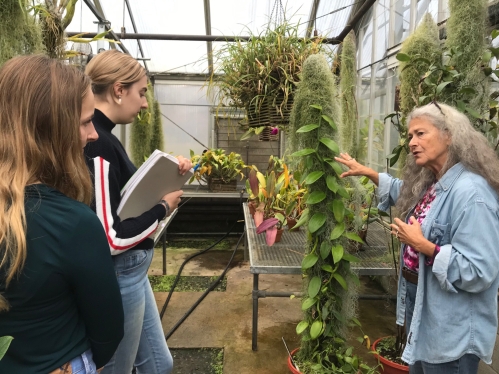Majors
Our curriculum is expertly designed to prepare you to tackle the challenges facing the world today—from sustainable food systems to wildlife conservation, from water policy to clean energy, and from climate change to the link between the human genome, diet, and disease. Classroom instruction meets experiential learning with each major offering lab work, internships, and study abroad opportunities.
Explore Our Majors
Should You Be an Agricultural Educator?
If you love agriculture, enjoy working with plants and animals, and relish the opportunity to teach people about the importance of agriculture, then Agricultural Science Education is the career for you.
